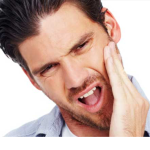No one is immune to the effects of aging, and that includes our smiles. Age can take its toll on our teeth and gums, affecting our appearance and overall oral health. And while there is no way to stop the clock, there are several things you can do to help keep your smile looking good as you get older.
This post will look at some factors that can affect an aging smile and also discuss strategies for keeping your teeth and gums healthy as you age.
What to consider
Your smile is one of the first things people notice about you. And as you age, your smile can become more vulnerable to disease and complications. That is why it is important to take care of your teeth and gums as you get older. Here are some factors that can affect an aging smile:
- Dry Mouth
Older adults are more likely to experience dry mouth, which can lead to a host of dental problems. Saliva is essential for keeping your mouth healthy. It washes away food and bacteria, helps with chewing and digestion, and neutralizes acids that can damage your teeth. When you do not have enough saliva, you are at a higher risk for cavities, gum disease, and other oral health problems.
Dry mouth can be caused by various factors, including medications, medical conditions, cancer treatments, and simply getting older. If you are experiencing dry mouth, talk to your dentist or doctor about possible treatments or ways to alleviate the symptoms. In the meantime, you can also try chewing sugar-free gum or sucking on hard candy to help stimulate saliva production.
- Gum Disease
Gum disease is an infection of the gums that can lead to tooth loss. According to the CDC, nearly half of adults over the age of 30 have some form of gum disease. And the risk only increases with age. Gum disease is caused by plaque, a sticky film of food and bacteria that constantly forms on our teeth
If not removed, plaque turns into tartar, which is much harder to remove and can lead to gingivitis–an early stage of gum disease. Gingivitis causes redness, swelling, and bleeding of the gums. If left untreated, it can progress to periodontitis, which is a more severe form of gum disease that can destroy the bone and tissue that support your teeth.
To prevent gum disease, it is important to remove plaque from your teeth every day. That means brushing at least twice a day, flossing once a day, and using an antibacterial mouthwash.
If you have gingivitis, your dentist may also recommend special toothpaste or mouthwashes that contain ingredients like triclosan to help control the bacteria in your mouth. In more serious cases of gum disease, surgery may be necessary to remove the infected tissue and bone.
- Tooth Decay
Tooth decay is caused by plaque that turns into acid and eats away at the enamel of your teeth. The older you get, the more likely you will experience tooth decay. That is because your tooth enamel starts to thin as you age, and your teeth become more porous. You also produce less saliva as you age, so there is less opportunity for your mouth to neutralize the acids that cause tooth decay.
The best way to prevent tooth decay is to remove plaque from your teeth every day. That means brushing at least twice a day, flossing once a day, and using an antibacterial mouthwash. You should also visit your dentist regularly for professional cleanings and checkups. If you have tooth decay, your dentist may recommend treatments such as fillings, crowns, or dental implants.
- Oral Cancer
Oral cancer is a type of cancer that affects the mouth, tongue, lips, or throat. It is most common in adults over 40, and the risk increases with age. According to the American Cancer Society, the average 5-year survival rate for oral cancer is only about 57%.
Early detection is key to treating oral cancer. That is why it is important to see your dentist regularly for professional cleanings and checkups. During the checkups, your dentist will look for signs of oral cancer, such as sores or lesions in the mouth that don’t heal, red or white patches on the gums or tongue, and unusual bleeding or pain in the mouth.
Oral cancer can be treated with surgery, radiation therapy, and chemotherapy. The best way to prevent oral cancer is to avoid tobacco products and excessive alcohol consumption. You should also eat a healthy diet and visit your dentist regularly for professional cleanings and checkups.
Bottomline
These are just a few of the most common oral health problems people face as they age. Taking good care of your teeth and gums and visiting your dentist regularly can help reduce your risk of these problems. And if you do experience any oral health problems, do not hesitate to talk to your dentist. Remember, early detection and treatment are key to ensuring a successful outcome and healthy smile!








